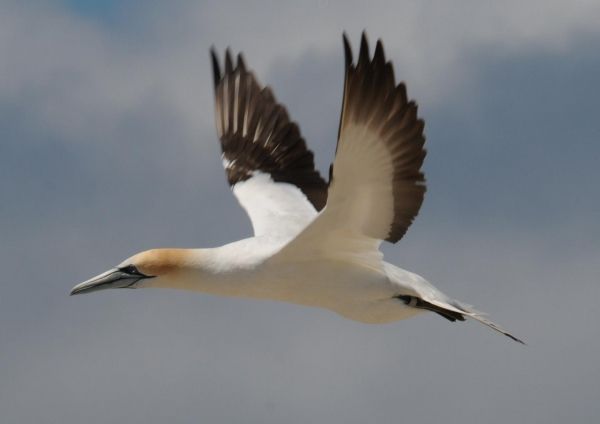Research led by the University of Sydney shows that under warm water events the nutritional balance of fish and squid changes and is of lower quality, while under cold water events it is of higher quality.
Conducted in New Zealand, the research used a highly successful marine predator seabird –the Australasian gannet – as a biological monitor of the marine environment and food sources.
The team combined miniature bird-borne GPS loggers, fish and squid nutritional analysis and nutritional modelling, and quantified colder and warmer water events by comparing the mean sea surface temperature with 10 years of data.
Fish and squid captured by gannets were found to have significantly lower ratio of healthy oils to protein during warm water periods (where sea surface temperature was warmer than the 10-year mean) and better nutritional quality during cold water periods (lower than the 10-year mean).
Read more at University of Sydney
Image: This is an Australasian gannet in flight. (Credit: Gabriel Machovsky-Capuska)


